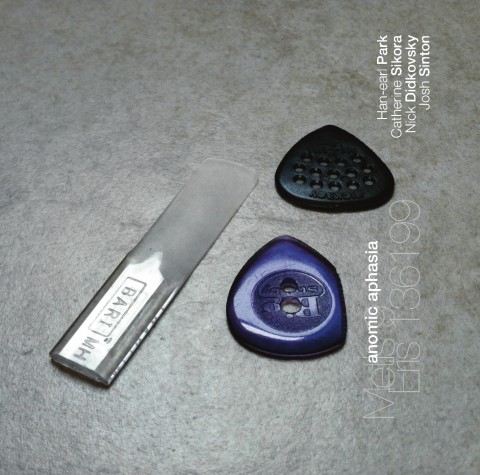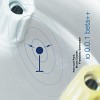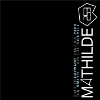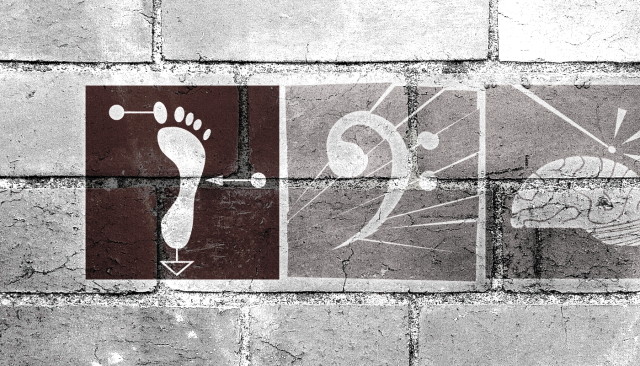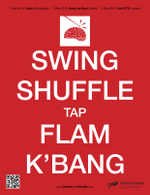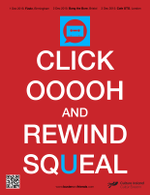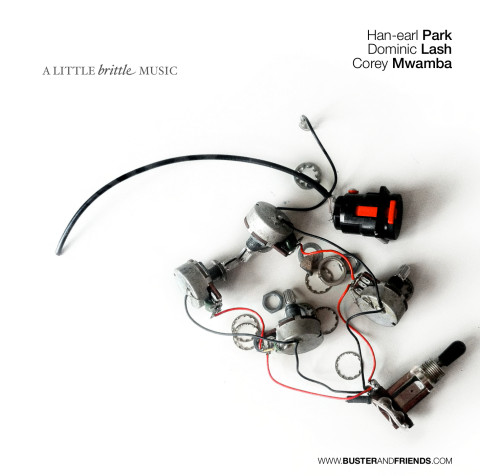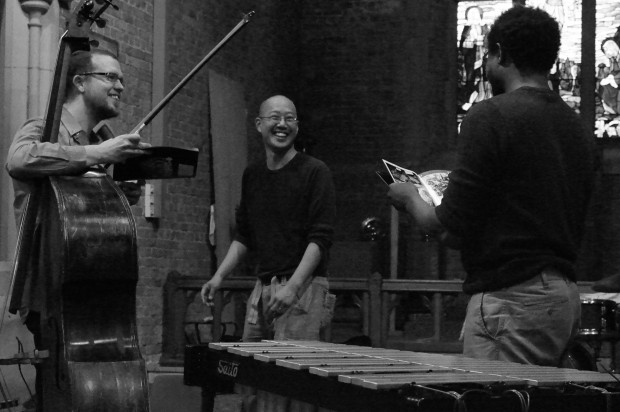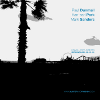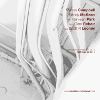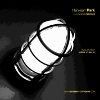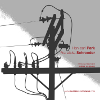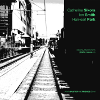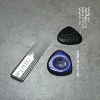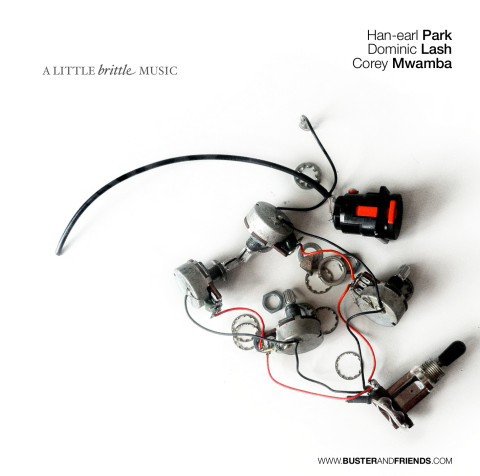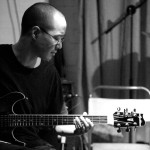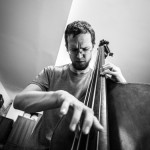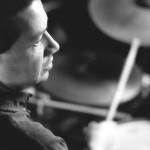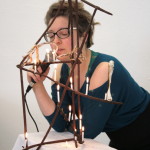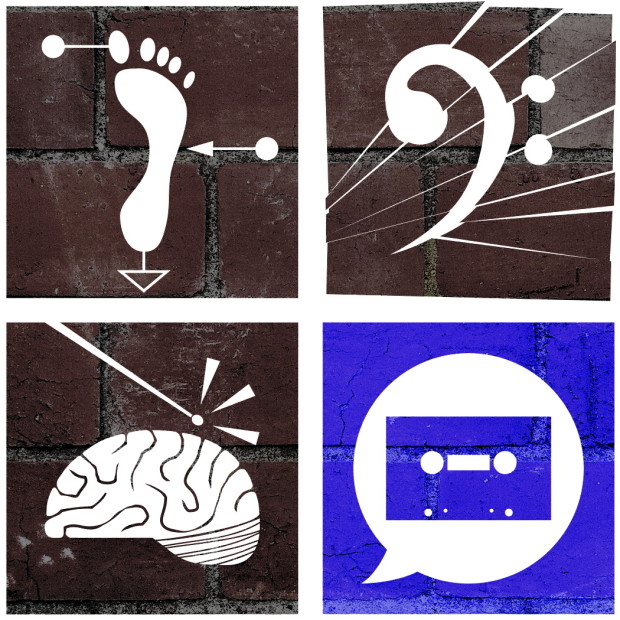Expect playful, noisy and inventive musical interactions as the cyborgian virtuoso guitarist Han-earl Park performs with double bassist Dominic Lash, drummer Mark Sanders, and vocalist and electronics performer Caroline Pugh in Birmingham (1 December 2015), Bristol (2 December) and London (3 December). This three-date tour marks the first European performances of Han-earl Park’s Metis 9, a collection of improvisative tactics for ensemble performance.
Described as “a musical philosopher… a delightful shape-shifter” by Brian Morton in Point of Departure, guitarist Han-earl Park has performed with some of the best improvisers from the Americas, Asia and Europe. He is part of ensembles including the London-based Mathilde 253 with Charles Hayward and Ian Smith, the New York-based Eris 136199 with Nick Didkovsky and Catherine Sikora, and the Berlin-based Numbers with Richard Barrett.
The performances will feature Park’s trio with the virtuosic bassist, composer and sound artist Dominic Lash, and Mark Sanders, arguably the most sought-after avant-jazz and free improvisation drummer of his generation. Joining the group will be Belfast-based experimental folk singer and electronics performer Caroline Pugh, bringing an additional layer of levity and exuberance to the already playful interactions of the trio.
In addition to presenting other improvisative and traditional works, this tour will mark the European premiere of Park’s Metis 9, a playbook of interactive tactics for group improvisation. Initially conceived and performed in New York (in collaboration with New York-based musicians, Josh Sinton and Catherine Sikora), Metis 9 is documented on the album Anomic Aphasia recently released by SLAM Productions to great acclaim (“☆☆☆☆½” All About Jazz, “☆☆☆☆” Free Jazz).
With musicians representing diverse strands of present-day improvised musics, prepare for a performance that fragments and recombines musical histories, a performance that leaps unexpectedly between noise, melody, dissonance, harmony and rhythm.
Improviser, guitarist and constructor Han-earl Park has been crossing borders and performing fuzzily idiomatic, on occasion experimental, always traditional, open improvised musics for twenty years. He has performed in clubs, theaters, art galleries, concert halls, and (ad-hoc) alternative spaces across Europe and the USA.
Park engages a radical, liminal, cyborg virtuosity in which mind, body and artifact collide. He is driven by the social and revolutionary potential of real-time interactive performance in which tradition and practice become creative problematics. As a constructor of musical automata, he is interested in partial, and partially frustrating, context-specific artifacts; artifacts that amplify social relations and corporeal identities and agencies.
Ensembles include Mathilde 253 with Charles Hayward and Ian Smith, Eris 136199 with Nick Didkovsky and Catherine Sikora, and Numbers with Richard Barrett. Park is the constructor of the machine improviser io 0.0.1 beta++, and instigator of Metis 9, a playbook of improvisative tactics. He has performed with Wadada Leo Smith, Paul Dunmall, Evan Parker, Lol Coxhill, Mark Sanders, Josh Sinton, Louise Dam Eckardt Jensen, Gino Robair, Tim Perkis, Andrew Drury, Pat Thomas and Franziska Schroeder, and as part of large ensembles led by Wadada Leo Smith, Evan Parker and Pauline Oliveros.
Festival appearances include Freedom of the City (London), Sonorities (Belfast), ISIM (New York), dialogues festival (Edinburgh), CEAIT (Los Angeles) and Sonic Acts (Amsterdam). His recordings have been released by labels including Slam Productions, Creative Sources and DUNS Limited Edition.
Park taught improvisation at University College Cork, and founded and curated Stet Lab, a space for improvised music in Cork.
“Guitarist Han-earl Park is a musical philosopher…. Expect unexpected things from Park, who is a delightful shape-shifter….”
Brian Morton (Point of Departure)
Dominic Lash is a freely improvising double bassist, although his activities also range much more widely and include playing bass guitar and other instruments; both writing and performing composed music; and writing about music and various other subjects.
He has performed with musicians such as Tony Conrad (in duo and quartet formations), Joe Morris (trio and quartet), Evan Parker (duo, quartet and large ensemble) and the late Steve Reid. His main projects include The Dominic Lash Quartet, The Set Ensemble (an experimental music group focused on the work of the Wandelweiser collective) and The Convergence Quartet.
Based in Bristol, Lash has performed in the UK, Austria, Finland, France, Germany, the Netherlands, Norway, Spain, Switzerland, Turkey and USA. For nearly a decade he was based in Oxford and played a central role in the activities of Oxford Improvisers; much of 2011 was spent living in Manhattan. In 2013 and 2014 he is taking part in Take Five, the professional development programme administered by Serious.
Festival appearances include Akbank Jazz Festival (Istanbul), Audiograft (Oxford), Freedom of the City (London), Huddersfield Contemporary Music Festival, Hurta Cordel (Madrid), Konfrontationen (Nickelsdorf), LMC Festival (London), Manchester Jazz Festival and Tampere Jazz Happening.
His work has been broadcast on a number of radio stations, including BBC Radios 1 and 3 and Germany’s SWR2, and released on labels including Another Timbre, b-boim, Bead, Cathnor, Clean Feed, Compost and Height, Emanem, Erstwhile, FMR, Foghorn, Leo and NoBusiness.
Since moving to Bristol he has been involved in organising concerts under the banners of Bang the Bore and Insignificant Variation. A new venture is the monthly series happening every second Wednesday at the Arnolfini entitled Several 2nds. Events include performances, workshops, film screenings and discussions.
“Following in an illustrious lineage from Barry Guy through Simon Fell… breathtaking.”
John Sharpe (All About Jazz)
Mark Sanders has played with many renowned musicians from around the world including Evan Parker, Peter Brotzmann, Derek Bailey, Myra Melford, Paul Rogers, Henry Grimes, Roswell Rudd, Okkyung Lee, Barry Guy, Tim Berne, Otomo Yoshihide, Luc Ex, Ken Vandermark, Sidsel Endresen and Jean Francois Pauvrois, in duo and quartets with Wadada Leo Smith and trios with Charles Gayle with Sirone and William Parker.
New collaborative projects include ‘Riverloam Trio’ with Mikolaj Trzaska and Olie Brice, ‘Asunder’ with Hasse Poulsen and Paul Dunmall, duos with John Butcher and DJ Sniff, ‘Statics’ with Georg Graewe and John Butcher, and trio with Rachel Musson and Liam Noble.
Mark and John Edwards play as a rhythm section with many groups including Trevor Watts Quartet, ‘Foils’ with Frank Paul Schubert and Matthius Muller, Mathew Shipp’s ‘London Quartet,’ also playing with Fred Frith, Wadada Leo Smith and Shabaka Hutchins amongst many others.
Christian Marclay’s ‘Everyday’ project includes Mark with Christian, Steve Beresford, John Butcher and Alan Tomlinson, he also works regularly in the projects of Mikolaj Trzaska, Gail Brand, Paul Dunmall, Peter Jaquemyn, and Simon H. Fell.
Mark has performed in the USA, Canada, Brazil, Japan, Morrocco, South Africa, Mozambique and Turkey, playing at many major festivals including, Nickelsdorf, Ulrichsburg, Glastonbury, Womad, Vancouver, Isle of Wight, Roskilde, Berlin Jazz days, Mulhouse, Luz, Minniapolis, Banlieue Bleues, Son D’hiver and Hurta Cordel.
He has released over 120 CDs.
“A gifted player capable of seamless movement between free-rhythms and propulsive swing.”
John Fordham (The Guardian)
Scottish vocalist and composer Caroline Pugh borrows old-fangled technologies and honours oral histories to create new performances. With a background in both folk and improvisation, her solo works You’ve Probably Heard These Songs Before, Timing By Ear, Measuring By Hand and Platform Audio also draw on performance art and pinhole photography.
Originally from Edinburgh, Caroline has performed across Europe and North America with new improvisation performances including Los Angeles’ Betalevel in 2012, NIME 2011 in Oslo, Just Listening 2011 in Limerick and Experimentica09 in Cardiff. She is also in a band called ABODE and an improvisation collective called E=MCH.
Now based in Belfast, Caroline sings in a folk duo with Meabh Meir and together with Myles McCormack they run traditional song sessions at the Garrick Bar on Mondays from 7.30-10pm.
In 2011, Caroline was awarded an Art Council Northern Ireland grant for her solo work and gained a Distinction for her AHRC-funded Master of Music at Newcastle University. She coaches students at Queen’s University Belfast and has worked in collaboration with visual artists (Connecting through Scape 2008), theatre practitioners (hour8+9 2009), video artists (SAAB 2009), dancers and psychologists (Newcastle and Northumbria Universities 2010). She also got a BA in Scottish Music from the Royal Academy of Music and Drama in Glasgow, and studied Contemporary Music at the University of Central Lancashire for a wee while too.
“Every once in a while you happen upon a gig or event that’s so fundamentally unlike anything you’ve experienced before that you can’t help but reconsider your own thoughts on what defines music, performance and entertainment.”
Brian Coney (BBC Across The Line)
